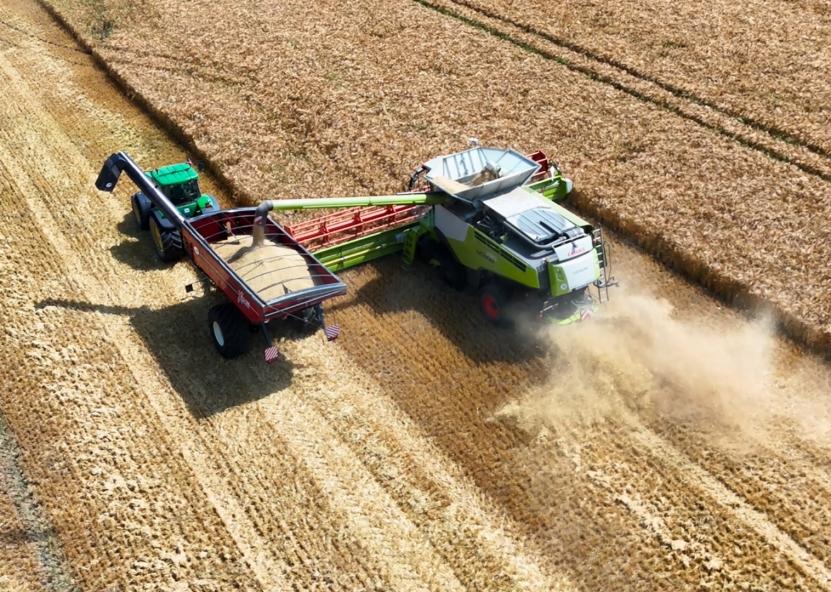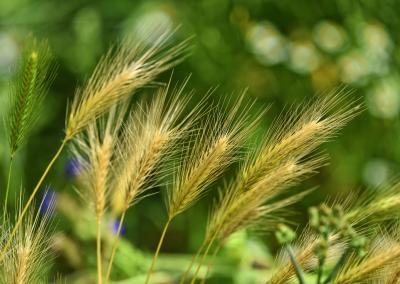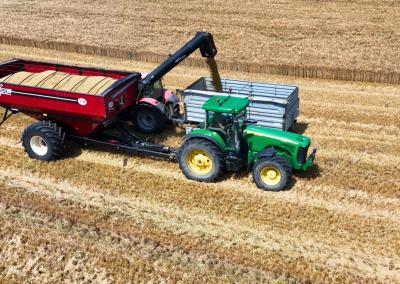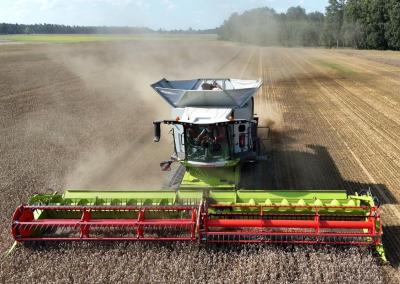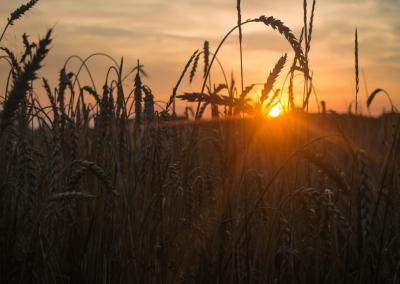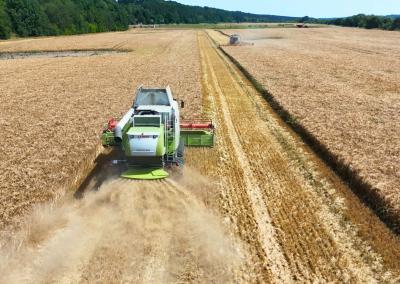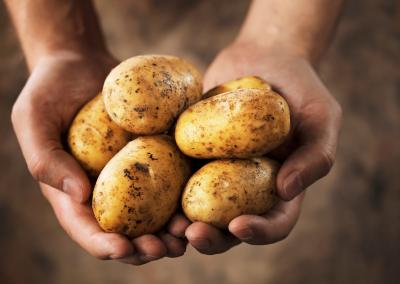Dzūkija farmers pack up their machinery for the harvest, but optimism about future harvests and buyers is low
Lithuanian farmers say that the spring harvest in Lithuania starts in Dzūkija. Farmers in our region admit that this year's harvest will be slightly delayed compared to previous years and yields are very difficult to predict. It is also worrying that grain buyers are introducing new categories, thus lowering the buying prices, so that grain growers are not facing the best of times.
Suppliers' goodwill expectedAudrius Vanagas, head of the Lithuanian Cereal Growers Association, told "Dzūkų žinios" that the spring and summer weather was in principle favourable for ripening the harvest. It will all depend on how well the harvest goes and how weather conditions allow.
„We are seeing a two-week delay in the harvest this year, as it would normally have started in early July. However, the harvest is slowly moving – in some fields, oilseed rape has matured and winter barley is being harvested“, – said the head of the association.
When asked about the conditions for buying grain, Vanagas noted that buyers have introduced additional categories for barley – this was not the case before.
„Winter barley is a crop where the grain is finer, it is light and starch and protein are the main weight. The buyers probably don't want chaff, they want grain, so they introduce classes. This sectioning is not a nice move on the part of the purchasers, especially as there are orders from the Minister for Agriculture allowing them to agree with the seller on the determination of the quality for the whole contract or for an individual machine. Purchasers should try to offer adequate conditions and not try to make themselves rich by artificially degrading the quality of the barley," said the head of the association.
When asked whether it could be said that there is a monopoly of grain buyers in Lithuania, Mr Vanagas said that there is no such monopoly in Lithuania, because there are many grain buying companies - large, small, new ones, but sometimes there are problems in obtaining income from them, he said.
Lithuania – most expensive drying
Audrius Vanagas: „Grain buyers are introducing new categories, lowering prices – this is worrying for farmers.“
Speaking about grain purchases, Vanagas admitted that drying of grain in elevators is very expensive here.
„It costs €7 to €8 per tonne of grain to dry one per cent moisture, which is financially painful for cheap barley, which is bought at €130 to €150 per tonne. When wetter grain arrives, as it has this year, when the weather is bad, it is very painful to dry. When you have to reduce the moisture content by four per cent, it costs around €30 per tonne. There is also a parallel charge for the weight of the grain that arrives. When a farmer sees all these charges, he is unpleasantly surprised. Our elevators have really high rates compared with other countries. In Latvia, for example, the rates are considerably lower, but it is difficult to understand why this is the case in Lithuania. The buyers have their own arguments, but their explanations do not comfort us," said Mr Vanagas.
When asked whether it is profitable to grow grain in Lithuania in general, Vanagas said that agriculture is a specific business, the capital invested is high, the costs are high, the flows are high, but the profitability is low, especially for winter barley.
„The cost is very high in individual cases, 5–7 tonnes need to be produced to cover the cost. If there is not a bumper crop, we have a certain loss. The reality is that we are in this business, we are not joking, it is just a pity that some people do not understand the specificity of this business," said A. Vanagas, the head of the Lithuanian Cereal Growers' Association.
Our country is not suitable for crop productionFarmer Alma Rutkauskiene: „In our region, crop farming is increasingly becoming unprofitable — nature and buyers are unfavourable.“ Alma Rutkauskiene, a well-known farmer from Lazdijai region, admitted that our region is unfavourable to crop farming, and that due to the changes in the climate, it is unprofitable for grain cultivation in the country.
She admitted that the weather has delayed the harvest this year. „Last year we started cutting winter barley on 13 July, whereas in previous years it was usual to go to the fields on 10 July. This year, oilseed rape has been badly affected by frosts and cutting will be delayed until mid-August," said the farmer.When asked about the forecasted cereal harvest, Rutkauskiene said that miracles are not to be expected. "If the insured crops were to be dropped after 45, 70 or even 90 per cent, we can understand what the yields will be. May was very cold and dry, which is very bad for crops in our region. The buyers are also showing their whims: five categories have already been introduced for oilseed rape, compared with only one five years ago, new categories have been introduced for winter barley, and even more categories for wheat. We are not in a region where we can survive on crop production," said farmer Alma.
Everything will be seen in the silos
Kęstutis Sujeta, head of the Lazdijai branch of the Lithuanian Farmers' Union, shares his fears about this year's harvest and the challenges ahead.
„This spring has been very cold and dry, so farmers have had to reseed a lot of damaged cereal fields. Crops such as maize, which are used to warmer climates, were also affected by the cold weather. Cereals were badly damaged by strong winds. All these factors suggest that this year's harvest will not be as good," said Mr Sujeta.
A lot will depend on the conditions at harvest time, he said. „It's hard to predict anything, everything will be seen when the grain breaks down in the silos“, – said K. Sujeta.



































































































